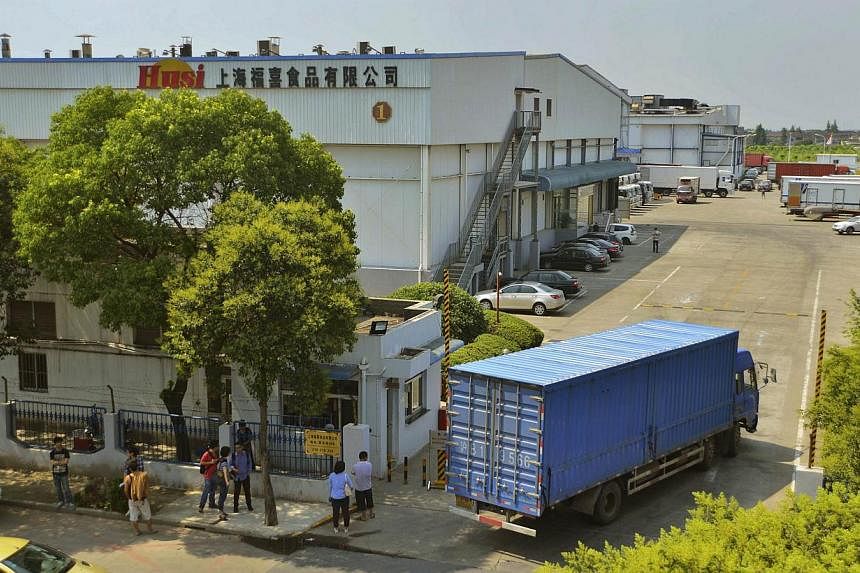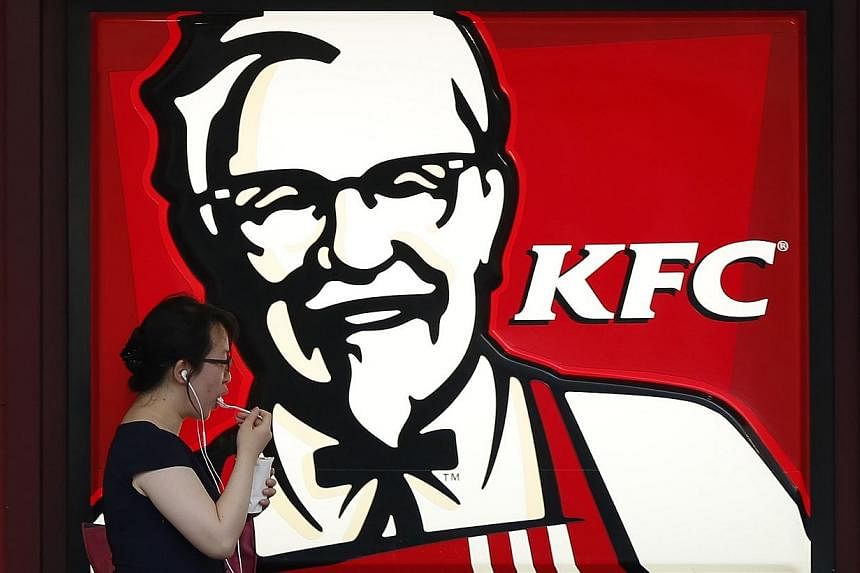China's food safety problems have been a great concern not just for its citizens, but also internationally as well.
The most recent in a long line of food scandals saw Shanghai's Husi Food Company supplying products containing expired meat to global brands such as McDonald's, KFC, Pizza Hut, Starbucks and Burger King. All tainted products have been pulled from the shelves.
Given that China is one of the biggest exporters in the world, domestic food scandals are likely to have an impact beyond its shores too. The case of Husi Food Company has also hit Japan's FamilyMart and McDonald's which also buy supplies from China.
We look at five of China's past food scandals that have affected countries beyond its borders.
1. Banned food colouring in KFC chicken
In March 2005, banned food colouring Sudan I, or Sudan Red, was found in the sauces of fast-food giant KFC's chicken wings and other chicken products in China.The colouring was banned in 1996 due to its links to an increased risk of cancer and other negative health effects.
All tainted items were removed and destroyed from over 1,000 KFC outlets in China.
Yum Brands, KFC's licence operator, suffered from bad sales for a while, but was back on its feet a few months later.
2. Cancer-causing chemicals in turbot fish
Turbot, a prized flatfish usually imported from Europe, was banned in 2006 from China's markets after concentrations of cancer-causing chemicals such as malachite green and the antibiotic chloramphenicol, were detected in two of five samples.
This led the Hong Kong government to block imports of turbots from the mainland. Three fish farms in the Shandong province were also ordered to suspend sales, destroy their products, and pay a fine of an unspecified amount.
3. Tainted frozen meat dumplings
In 2008, 10 Japanese consumers fell sick with pesticide poisoning after consuming frozen meat dumplings made by Tianyang Food Processing Limited, a factory in northern Hebei province.
Japanese health officials found traces of methamaidophos, an organic phosphorous insecticide, in the dumplings and the patients' vomit. Millions of bags of dumplings were recalled after the incident.
While China food quality officials claimed that they found no pesticide in 30 samples of frozen dumplings, the food scare led to a plunge in foreign consumer confidence in Japan, which is a key export market for China.
Japan Tobacco Inc and Nissin Food Products Company also scrapped a US$500 million merger of their frozen food units after the cigarette company was accused of selling the poisoned dumplings in an alleged deliberate criminal act.
4. Food poisoning from frozen strawberries
In Oct 2012, frozen strawberries that were exported from China to Germany caused 11,000 German children to suffer from food poisoning, the biggest outbreak caused by contaminated food in German history. More than 30 children were sent to the hospital.
The Robert-Koch Institute in Germany suspected that norovirus found in a bag of frozen strawberries from China was the cause of the incident.
However, the Chinese media repeatedly denied the claim, and insisted that tests conducted by the General Administration of Quality Supervision, Inspection and Quarantine (AQSIQ) found the strawberries to be clean.
5. KFC's "instant chicken"
KFC cut more than 1,000 farms from its Chinese supplier network in 2013 after reports showed that the chickens supplied were fed excessive hormones and 18 different types of antibiotics to speed up their growth.
KFC's parent company, Yum Brands, saw its sales for 2013 shrink and its shares plummet after the food scare. Its outlets in China, mostly KFC locations, earn around half of its total revenue each year.


